Animals
-
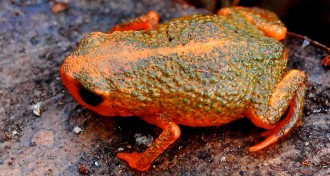 Animals
AnimalsNewly discovered tiny frogs live on islands in the sky
Scientists find seven new species of frogs in southern Brazil, and more could be waiting, they say.
-
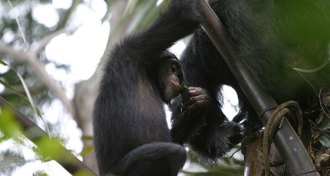 Animals
AnimalsChimps get buzzed on fermented tree sap
Scientists have documented the first case of chimpanzees drinking ethanol in the wild.
-
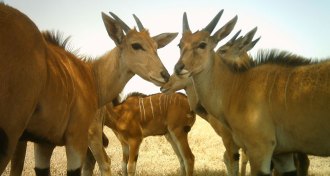 Animals
AnimalsCamera traps provide treasure trove of African animal pics
Scientists set up hundreds of cameras across Serengeti National Park to capture images of predators and their prey.
-
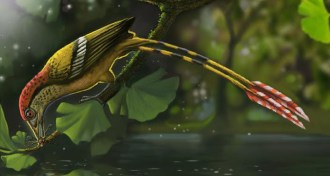 Paleontology
PaleontologyHorned dino aside, here are some other fun fossil finds
Here's a roundup of some fossil finds reported this week.
-
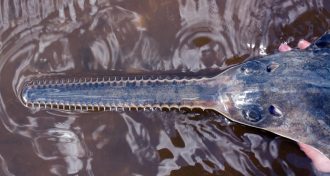 Animals
Animals‘Virgin births’ won’t save endangered sawfish
Sawfish are the first wild vertebrates found to reproduce via parthenogenesis.
-
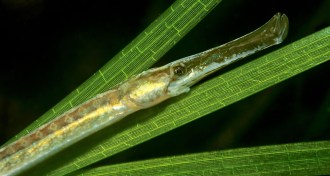 Animals
AnimalsPregnant male pipefish not so great at giving embryos oxygen
During male pregnancy, pipefish embryos can get stunted by low oxygen in dad’s brood pouch.
By Susan Milius -
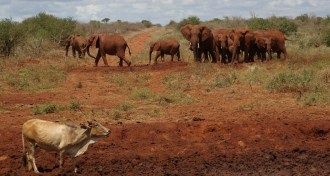 Animals
AnimalsAfrican herbivores share space but not diet
Large herbivorous mammals on the plains of Kenya have distinctive diets, a new study finds.
-

-
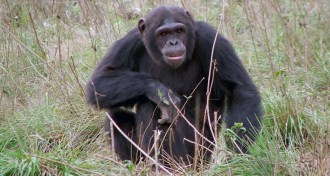 Anthropology
AnthropologyChimps prefer roasted potatoes, hinting at origins of cooking
Chimps really dig roasted potatoes, suggesting cooking arose millions of years ago.
By Bruce Bower -
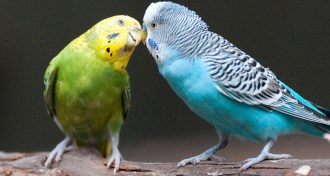 Animals
AnimalsParakeets can catch yawns from their neighbors
Humans and dogs aren't the only ones that can pass along a yawn. They appear to be contagious among parakeets, too.
-
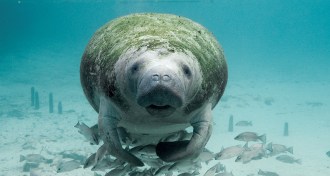 Animals
AnimalsWhen swimming with manatees, mind the herd
Manatees hang out in Florida’s Crystal River; tourists can choose a mindful visit or a harmful one
-
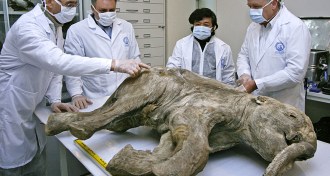 Genetics
GeneticsExtinct species may get a second chance
An evolutionary biologist explains the obstacles scientists must overcome to revive extinct species.